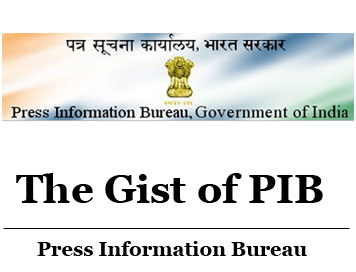(THE GIST OF PIB) ONDC Startup Mahotsav

(THE GIST OF PIB) Citizenship (Amendment) Rules, 2024
(MAY-2024)
Citizenship (Amendment) Rules, 2024
-
The first set of citizenship certificates after notification of Citizenship (Amendment) Rules, 2024 were issued recently.
-
The Government of India had notified Citizenship (Amendment) Rules, 2024 in March 2024.
-
The Rules envisage manner of application form, procedure for processing applications by District Level Committee (DLC) and scrutiny and grant of citizenship by State Level Empowered Committee (EC).
How is citizenship acquired in India?
-
In India, citizenship is regulated by the Citizenship Act, 1955.
-
The Act specifies that citizenship may be acquired in India through five methods – by birth in India, by descent, through registration, by naturalisation (extended residence in India), and by incorporation of territory into India.
Can illegal migrants acquire citizenship?
-
An illegal migrant is prohibited from acquiring Indian citizenship.
-
An illegal migrant is a foreigner who: (i) enters the country without valid travel documents, like a passport and visa, or (ii) enters with valid documents, but stays beyond the permitted time period.
-
Illegal migrants may be imprisoned or deported under the Foreigners Act, 1946 and the Passport (Entry into India) Act, 1920.
Citizenship (Amendment) Act 2019 The Citizenship (Amendment) Act 2019 makes it clear that immigrants belonging to Hindu, Sikh, Christian, Buddhist, Jain and Parsi communities from Pakistan, Bangladesh and Afghanistan will not be treated as illegal. They will be eligible to get naturalised citizenship.
-
One of the requirements for citizenship by naturalization under the 1955 Act is that the applicant must have resided in India during the last 12 months, and for 11 of the previous 14 years.
-
The amendment act relaxes this 11-year requirement to five years for persons belonging to these six religions from these three countries.
-
They will also no longer be deported or jailed under the Foreigners Act of 1946 and the Passport (Entry into India) Act of 1920.
-
The cut-off date for citizenship is December 31, 2014 which means the applicant should have entered India on or before that date.
Rationale of the Law
-
The Statement of Objects and Reasons in the amendment Act (SoR) states that India has had historic migration of people from Afghanistan, Pakistan and Bangladesh, and these countries have a state religion, which has resulted in religious persecution of minority groups.
Are the provisions of the Act applicable across the country?The Act clarifies that the amendments will not apply to certain areas. These are:
-
the tribal areas of Assam, Meghalaya, Mizoram, and Tripura, as included in the Sixth Schedule to the Constitution.
-
the states regulated by the “Inner Line” permit under the Bengal Eastern Frontier Regulation 1873.
How does the Act change the regulations for Overseas Citizens of India?
-
The Act also amends the provisions on registration of Overseas Citizens of India (OCI).
-
OCI cardholders are foreigners who are persons of Indian origin. The government may cancel a person’s OCI registration on various grounds specified in the 1955 Act.
-
The 2019 amendment adds another ground for cancelling OCI registration — violation of any law notified by the central government.
CLICK HERE TO DOWNLOAD FULL PDF
CLICK HERE TO DOWNLOAD UPSC E-BOOKS
Study Material for UPSC General Studies Pre Cum Mains
Get The Gist 1 Year Subscription Online
Click Here to Download More Free Sample Material
<<Go Back To Main Page
Courtesy: PIB


